
Bulgaria: Horizon 2020
Horizon 2020: citizens’ visions for reform and development of Bulgaria in the EU (September 2011 – March 2012) – a project financed by the Open Society Institute – Bulgaria. The project aims to raise the public awareness and to encourage the civil debate about Bulgaria’s strategic goals for development and its commitments as EU member state. In this subject euinside will be informing you about the main positions Bulgaria will prepare on some of the key European policies and guidelines for development. As we think that it is of utmost importance these issues and positions to be broadly discussed, we intend to involve the most active representatives of the civil society in Bulgaria in the debate.
 This website has been selected to be supported in the framework of a competition aimed at boosting media pluralism, funded by the Open Society Institute - Sofia. The Open Society Institute - Sofia is not responsible for the published on this website materials and its content in no way should be assumed as being an official position of the institute.
This website has been selected to be supported in the framework of a competition aimed at boosting media pluralism, funded by the Open Society Institute - Sofia. The Open Society Institute - Sofia is not responsible for the published on this website materials and its content in no way should be assumed as being an official position of the institute.
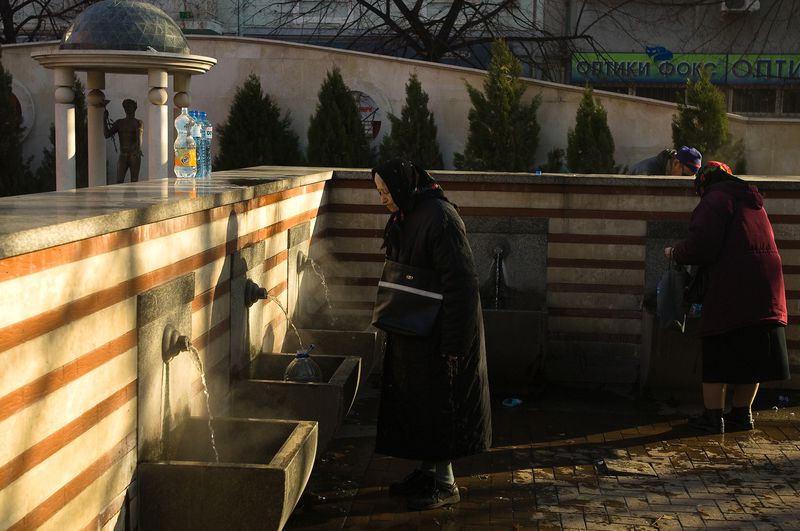 | © EU
| © EUBulgaria Dooms Itself to Permanent Poverty
There is a risk Bulgaria's economy to lock itself in a regime of low growth which will make it difficult to service its debt, concluded in the end of 2012 the European Commission in its Alert Mechanism Report on macro-economic imbalances, of which Bulgaria together with another 13 EU member stat ... | © European Union
| © European UnionParallel Bulgaria
The parallel Bulgaria is not the country of "statistical average" that unalterably occupies the bottom places in European rankings for standard and quality of living. It is also not the country of the politicians and oligarchs that the government affiliated media obligingly strive to bring close ... | © euinside
| © euinsideWhy Should the EU be Studied at School?
With this question I tried to provoke teachers from secondary schools in Bulgaria, gathered for a seminar in the EU Information Centre in Sofia. The event was organised by the Information Office of the European Parliament in Bulgaria and aimed Bulgarian MEPs to acquaint teachers with the current ...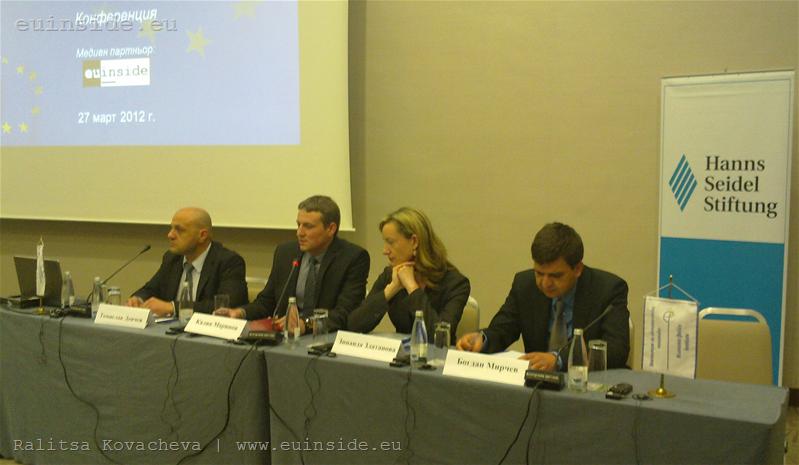 | © euinside
| © euinsideNew Member States and the EU 2014-2020 Budget
Preserving the amount of the Cohesion policy and the Common Agricultural Policy (CAP) is the absolute priority for the new EU member states in the negotiations on the next Multiannual Financial Framework (MFF) 2014-2020 of the Union. This has once again become clear at the conference "Bulgaria a ...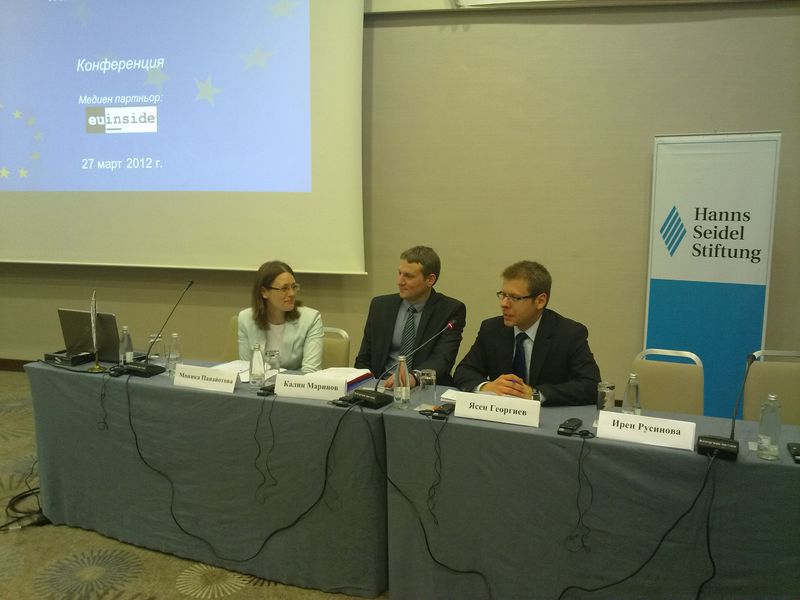 | © euinside
| © euinsideHello, Is This the Bulgarian Position? No, You Got the Wrong Number
Is there a change in the Bulgarian position on a financial transaction tax (FTT)? And if so, why was the change needed and what is its direction? Not for the first time euinside is asking these questions, but once again their answer is not particularly clear, moreover, as it turned out, not only ... | © European Union
| © European UnionNegotiations on the EU budget 2014-2020 Enter a Decisive Stage
The EU Multiannual Financial Framework (MFF) 2014-2020 and the Bulgarian perspectives will be discussed at a conference in Sofia on 27 March 2012, organised by the Economic Policy Institute. The main issues to be discussed are the proposal for a financial transaction tax, the change of the syste ... | © European Union
| © European UnionBulgaria 2020 – Searching for a New Economic Engine
euinside`s analysis, dedicated to education as a priority in the strategic framework of the National Programme for development "Bulgaria 2020", reveals that quality education is the crucial factor for development of high added value economy and for increase of competitiveness. Let's see, however ... | © European Union
| © European UnionEducation Is the Key for Implementation of "Bulgaria 2020" Strategy
The draft programme for national development "Bulgaria 2020" can be described briefly like this: a lot of 'what' and a little of 'how'. The good news is that the draft objectively presents the real challenges facing the country, and its goals are quite logical national priorities, reflecting the ... | © EU
| © EUEurope's Future Depends on Knowledge
Almost two years ago I wrote an article, which I titled "It's the education, stupid!", a paraphrase of the famous remark in the US during Bill Clinton's presidency "It's the economy, stupid!". Now, again I would like to use this title because time and time again we come to the conclusion that wi ...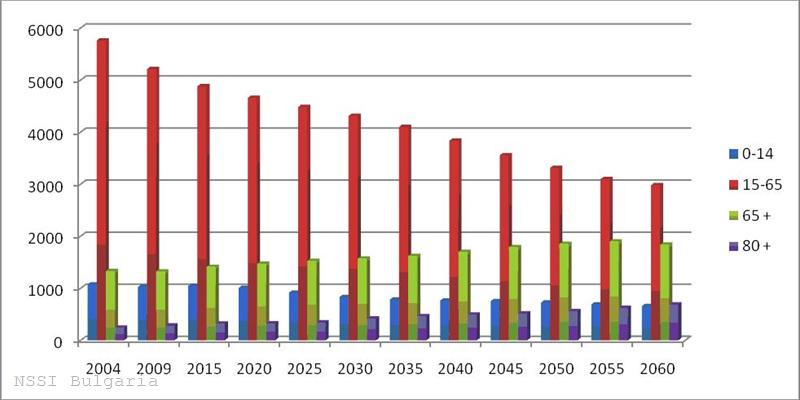 | © NSSI Bulgaria
| © NSSI BulgariaThe Implicit Debt of Social Security Systems In the EU: Challenges to Bulgaria
In February 2012 the European Commission has published a White Paper on adequate and sustainable pensions. The document aims to re-sharpen European public opinion's attention on the problems associated with ageing. This process will only intensify in coming years, as it will put on trial the soc ... | © euinside
| © euinsideWill the Money Follow Children or ...
The new Bulgarian bill on school education provides for the principle "money follows the student" to be put into practise for the first time, which will allow pupils in private schools to receive state subsidies too. This caused mixed public reactions - from complete approval to fierce criticism ... | © European Union
| © European UnionIs the European Pensioner Coming?
The number of pensioners in Europe will increase, but their pensions will be smaller. The number of workers will decrease and they will work more and longer. By 2060 there will only be two adults of working age for every pensioner. Currently the ratio is 4:1. This gloomy outlook is outlined in t ...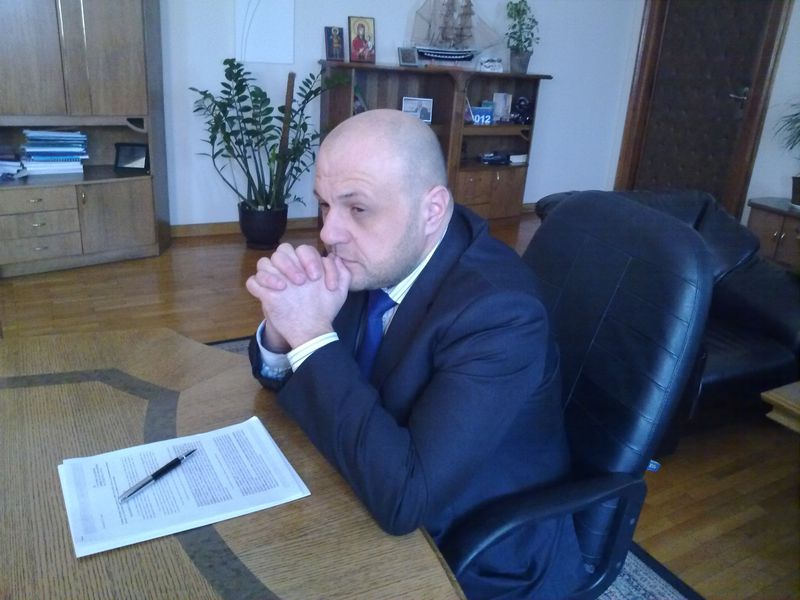 | © euinside
| © euinsideBulgaria 2020: Transport, SMEs, Innovation and Education
Although there are still nearly two years remaining of the current seven-year EU budget, the debates on the next one are at their height. At this stage they are focused primarily on principal issues - on building the philosophy of the Multiannual Financial Framework (MFF) 2014-2020 and definin ... | © European Parliament Audiovisual
| © European Parliament Audiovisualeuinside Provoked Heated Debates on the Issue of Tax Harmonisation in the EU
The theme 'For or Against the Introduction of a Common Consolidated Corporate Tax Base (CCCTB) in the EU' provoked heated debates on this web site, with several prominent economists, analysts and one MEP involved. In the following text I will try to summarise the main points and conclusions whic ... | © EU
| © EUIs There a Tax Threat for Bulgaria Coming from the EU?
Should the European Union introduce a common consolidated corporate tax base (CCCTB)? This issue has been discussed for years but only last spring the European Commission has come up with a concrete proposal. Although in 2011 it was overshadowed by the debt crisis, the proposal is already being ...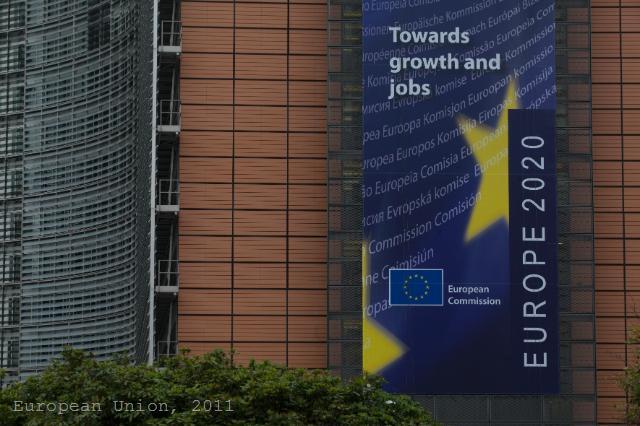 | © European Union, 2011
| © European Union, 2011The Future of EU Cohesion Policy 2014-2020
For the first time in Europe's history the Polish EU Presidency organised a debate on the future of the cohesion policy in the framework of the General Affairs Council (GAC). Thus, Poland has clearly demonstrated that cohesion policy is its top priority and is essential for the new member states ... | © Bulgarian Ministry of Finance
| © Bulgarian Ministry of Finance Bulgaria Does Not Give Money to the IMF Because It Failed to Tackle the Crisis
The eurozone countries have confirmed their commitment from the European Council on 9 December, to provide 150 billion euros from a total of 200 billion euros additional resources to the IMF in the form of bilateral loans. The remaining 50 billion euros are to be provided by countries outside th ...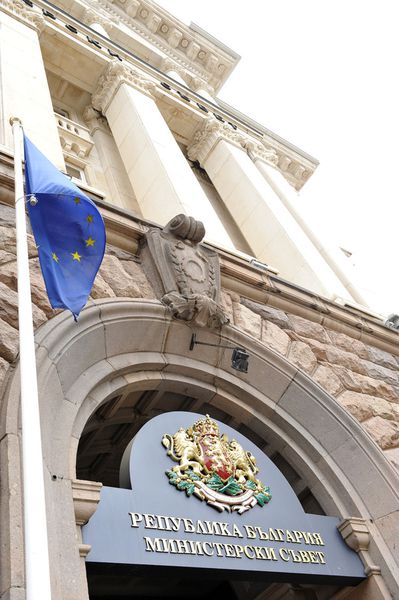 | © Government Information Service
| © Government Information Service Some Considerations about Bulgaria's 2012 Budget - from the blogs
"Next year's budget of Bulgaria is the same as this year's - small deficit, high spending for pensions and zero creativity." This is how euinside has described next year's budget in one sentence. As one of the most serious risks to the budget euinside highlighted the political will to resist pre ... | © The European Union
| © The European UnionIs the Bulgarian Position Against the FTT Justified
Bulgaria has been an EU member for five years now, but yet there is a feeling that this is a formal membership, which our country does not get maximum benefits from. 'Brussels' is still represented by politicians and is perceived by the public as a source of funds on the one hand, and as an excu ...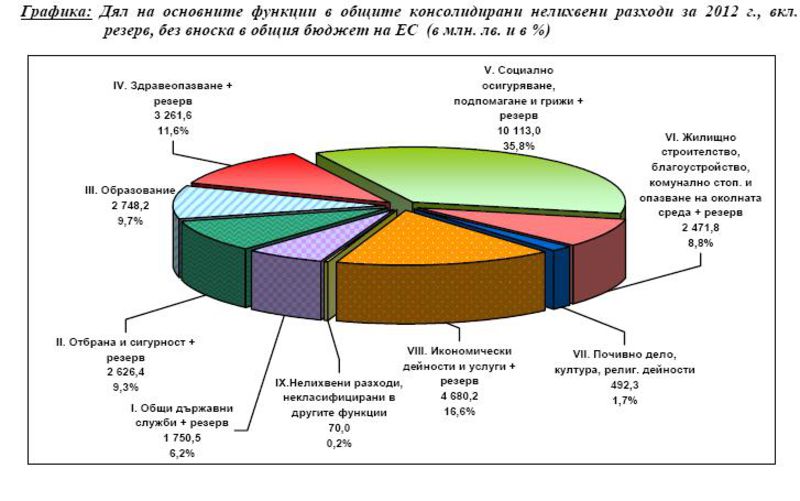 | © Ministry of Finance
| © Ministry of FinanceBulgarian 2012 Budget: Sans Changement
Next year's budget of Bulgaria is the same as this year's - small deficit, high spending for pensions and zero creativity. Obviously the government is reinsuring itself against potential risks, so the first criticism of the budget was that it was too conservative. However, there are still seriou ... | © European Parliament- Audiovisual Unit
| © European Parliament- Audiovisual UnitHow Many Types of Leaves Bulgarian Mothers Should Use
Do women, who are on maternity leave, have to also be entitled to paid annual leave? This question, raised by Petar Ganev, an economist with the Institute for Market Economics (IME), unleashed stormy reactions in the media and social networks in Bulgaria. For euinside he explained his position a ...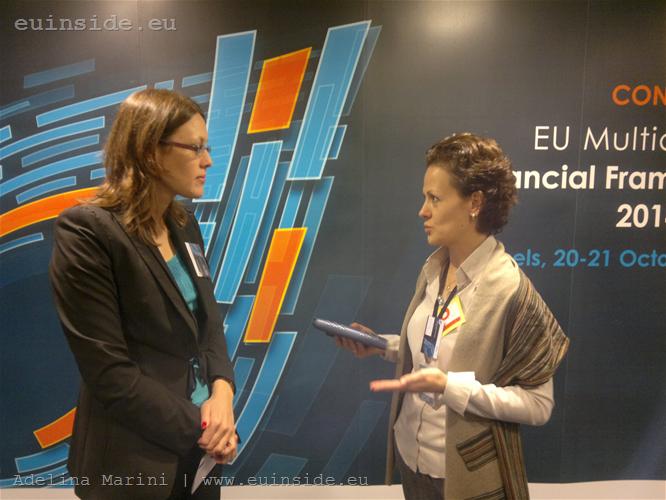 | © euinside
| © euinsideKeeping Basic Infrastructure Is a Major Priority for Bulgaria for the Next European Budget
The Bulgarian National Assembly has already sent to the European Parliament its position on the next multiannual European budget. Bulgaria is in general FOR an increase of the budget, especially in terms of the Cohesion and Agricultural policies but there are reservations regarding the Europea ...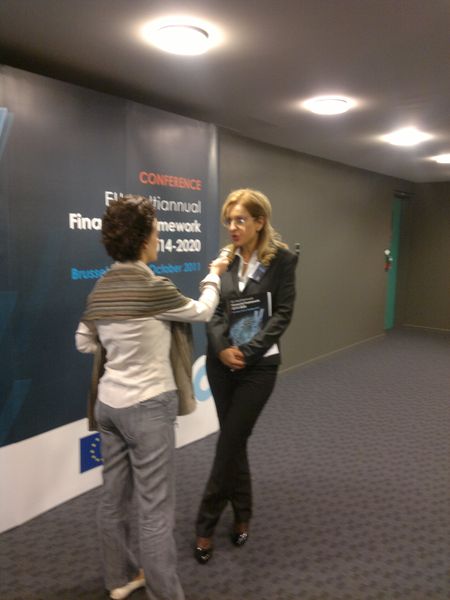 | © euinside
| © euinsideBulgaria Will Insist on Equal Treatment in the European Budget
The Polish EU Presidency and the European Commission have organised a broad conference that marks the beginning of the usually intense debates on the multiannual budget of the community. In the conference in Brussels take part representatives of the national and European institutions, parliame ... | © euinside
| © euinsideBusiness Should Sing
I was thinking until recently that there had to be a way the city I live in to be organised better and that this should start from the mayor downwards. Alas, although it is extremely important who a mayor is - as a personality and a professional - it is as important people themselves to want to ...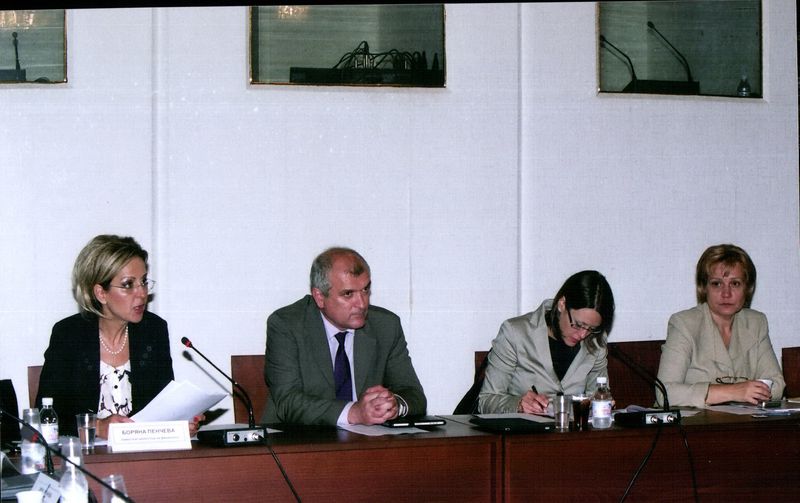 | © www.parliament.bg
| © www.parliament.bg